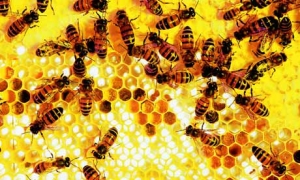Is organic honey really organic ? It is next to impossible for any American beekeeper to (honestly) call their honey “organic”. This is primarily due to the nature of how honey is made. Bees venture out 3-4 miles from home to collect pollen and nectar from millions of plants to make their honey. There is no way to know what plants they came into contact with or where. It is possible that these plants may have been treated with a pesticide or herbicide. If you’ve seen USDA organic labels on honey before, first, check the country of origin on the label…it’s most likely not from the US. Second, did you know that the USDA currently doesn’t even have standards for organic honey? Generally speaking, most USDA inspections are done by third -party inspectors and have actually been known to slip some honey producers through as organic based on the guidelines for keeping livestock. Yes, livestock such as cows and pigs. If anyone labels their honey as “organic”, beware. It may be just slick marketing to snatch more of your hard-earned money. It’s best to buy your honey locally and ask a few questions of the beekeeper or if you don’t have place near you to buy local honey. Try order raw honey online or health store /whole foods store.
What’s the difference between filtered and strained honey?
Honey is a delicious and beneficial food source with tiny particles of pollen and other goodies in it. Most large honey producers, and many smaller ones will force honey through microscopic filters to make the end product more crystal clear and prettier in bottles. Due to this process, much of the “good for you” stuff and wild flavours are removed. Strained liquid honey, straining is just what it sounds like. Essentially, it just remove pieces of natural beeswax and other hive debris from the honey, leaving behind a natural, healthy product.
What is raw honey?
Raw honey is simply honey that has not been heat pasteurized. Most commercial honeys will be heat treated (cooked) in order to slow down the rate of crystallization and to keep it clear for long periods of time on the shelf. It also temporarily thins down the honey so that it can be poured into containers faster. Unfortunately, this heating also kills off many of the natural, beneficial enzymes and flavors. Go ahead and taste test a raw honey against a heat pasteurized honey. The taste will tell you a lot. So, don’t be afraid of the word “raw” when it comes to honey. It’s safe and actually better for you than the heated alternatives.
Honey is getting cloudy (crystallising), what’s going on? All honey will eventually crystallize, but heat pasteurized honey like you find in big grocery stores just does it at a slower rate. It is not spoiled and you do not need to throw it out. If this ever happens, simply place the container in a bath of warm water until it liquefies again.


I have some Manuka Honey is that the same as raw honey?
Yes Manuka honey is simply honey made from one specific plant – the manuka tree, which is found in New Zealand. This means that manuka honey will not contain blends of various types of honey, and so any bio-active compounds found in it will be consistent. It is widely marketed as having powerful medical and health properties, and as being a much superior product to generic honey. Indeed, manuka honey is much better regulated, and if it is called manuka honey on the jar, you can be much more confident that it will actually be manuka honey in the jar, rather than sugar syrup and sweeteners.
Hope that helped answer your question
GOCCWEBTEAM